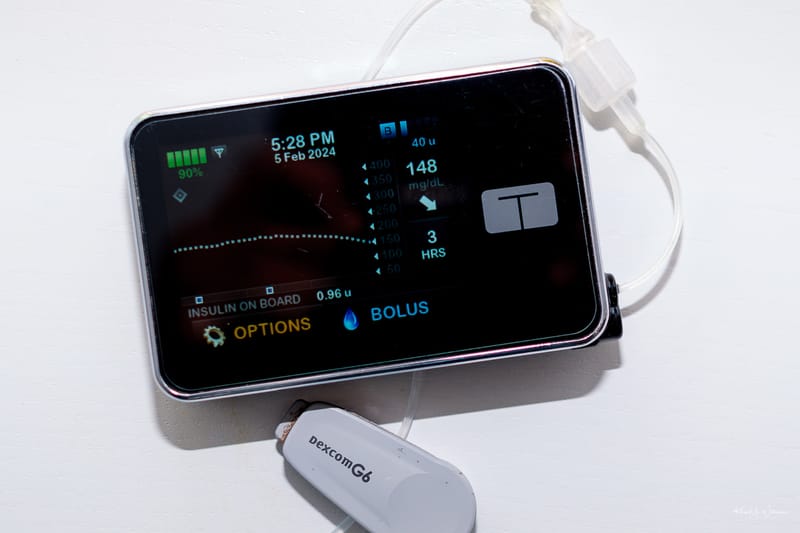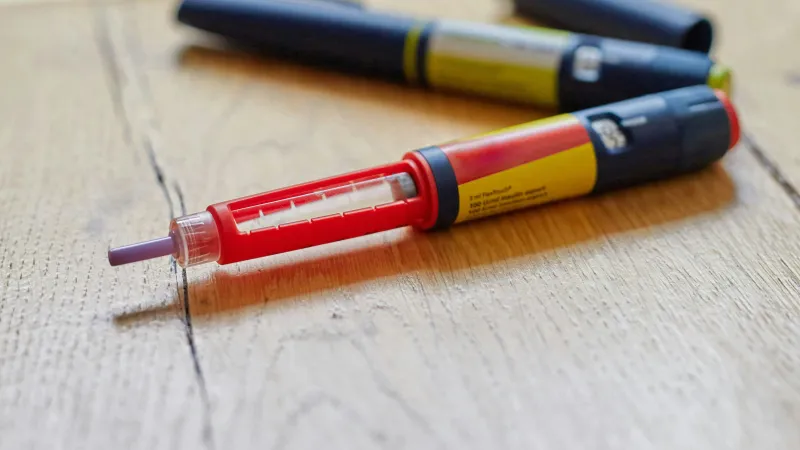The hospital walls felt all too familiar during my second diabetic ketoacidosis (DKA) episode. The uncontrollable vomiting, the maddening combination of extreme thirst yet painful swallowing, these symptoms had returned with a vengeance. As I lay there, hooked up to IVs and monitors, I didn't expect that this exasperating experience would lead to a revelation that would change everything: after years of treatment for Type 2 diabetes, I actually have Type 1.
It's strange how a diagnosis that might sound more challenging to some felt like such a relief to me. Finally, an explanation for why my body seemed to fight against all my careful management efforts. Finally, a path forward that made sense for what my body was actually experiencing.
The Emotional Rollercoaster of a Changed Diagnosis
When the doctor delivered the news, I felt a complex wave of emotions wash over me. Relief was certainly there, but so was frustration about the years spent on a treatment plan that wasn't right for my condition. There was concern about what this would mean going forward, but also a strange validation. I hadn't been failing at managing my diabetes; I'd been fighting the wrong battle entirely.
Looking back, I can see the signs that should have pointed to Type 1 all along. The increasing need for insulin injections. The unpredictable blood sugar swings despite careful carb counting and medication adherence. The way my body seemed to struggle more as time went on, not less.
April's Appointment: A Beacon of Hope
Now, with my diabetes consultant appointment in April approaching, I'm experiencing something I haven't felt in quite a while: genuine optimism. There's a real possibility I could be approved for an insulin pump, and that thought alone has become my light at the end of the tunnel.
For those who don't live with diabetes, it might be hard to understand why the prospect of a small medical device could generate such hope. But an insulin pump isn't just a convenience, it represents a fundamental shift in how I could manage this condition that impacts every hour of every day.
Instead of the rigid schedule of multiple daily injections, a pump would deliver continuous, precise insulin doses that better mimic a functioning pancreas. It could mean fewer dramatic highs and lows, less risk of another exhausting DKA episode, and most importantly, the freedom to live my life with diabetes as a manageable condition rather than an all-consuming focus.
Why a Pump Could Transform My Diabetes Management
Since my diagnosis changed, I've been monitoring my glucose levels even more vigilantly, and the patterns I'm seeing confirm what I've suspected: my body needs a more sophisticated approach to insulin delivery.
The most infuriating aspect of my current management is the interrupted sleep. Night after night, I'm woken by alarms warning of highs or lows, forcing me to correct with insulin or glucose at 2 AM, 4 AM, sometimes multiple times in a single night. The cumulative fatigue from months of fragmented sleep has affected every aspect of my life. An insulin pump, particularly one with an integrated continuous glucose monitoring system, could potentially address these nighttime fluctuations automatically, allowing me to actually sleep through the night, something I haven't experienced in far too long.
And after experiencing DKA twice, with the relentless vomiting and aggravating thirst still vivid in my memory, the thought that a pump could help prevent another episode is incredibly motivating. The early warnings of rising blood sugar and automated insulin adjustments could be life-changing.
But beyond avoiding these exasperating episodes, I'm dreaming about the everyday freedoms a pump might offer:
- The ability to adjust insulin delivery for exercise without planning hours in advance
- The flexibility to delay or extend mealtime without throwing off my entire insulin schedule
- The reduced mental burden of constant calculations and adjustments
- And most critically, the chance to sleep through the night without diabetes management interruptions
Preparing My Case
I know the NHS has specific criteria for insulin pump eligibility, and I'm not taking approval for granted. That's why I'm approaching my April appointment with a well-documented case for why this technology would significantly improve my health outcomes.
This will be my first time discussing pump therapy with my consultant, so I've been doing extensive research and preparation. I've been keeping detailed records of my glucose patterns, insulin doses, and how various factors affect my levels. I want my consultant to see the concrete evidence of why my particular situation would benefit from pump therapy.
Based on my research, I'm particularly interested in the Medtronic 780G system. After reading numerous reviews, it seems this model has addressed many of the frustrations users experienced with the previous 670G version. The improvements in its algorithm and usability features appear well-suited to my lifestyle and management challenges, particularly those nighttime fluctuations that currently disrupt my sleep.
Finding Community in the Diabetes Journey
One unexpected bright spot in this journey has been connecting with others living with Type 1 diabetes. After years of feeling like an outlier in Type 2 support groups (now I understand why!), finding people who truly understand the unique challenges of Type 1 has been invaluable.
Their insights about life with an insulin pump have been both encouraging and realistic. While many describe their pumps as life-changing, they've also mentioned challenges like occasional "occlusion errors" or issues with leaking from infusion sites. Though I can't yet comment on these from personal experience, I appreciate the balanced perspective. Perfect technology doesn't exist, but the benefits of pump therapy seem to far outweigh these manageable inconveniences for most users.
Looking Forward with Cautious Hope
Until my April appointment arrives, I'm focusing on gathering information, optimising my current management approach, and allowing myself to feel hopeful about this potential new chapter in my diabetes care.
Even if the path to getting a pump takes longer than I hope, I'm committed to advocating for the care that will give me the best quality of life. This diagnosis change, though initially jarring, has opened doors to treatment options that better match what my body needs.
For now, I'm holding onto this newfound optimism, counting down the days until April, and imagining a future where diabetes doesn't dominate quite so much of my mental and emotional energy, and where I might finally enjoy a full night's sleep again.
I'd love to hear from others who have made the transition to an insulin pump, particularly the Medtronic 780G. What was your experience like? Did you find that it helped with overnight glucose management? What advice would you offer someone at the beginning of this journey?




